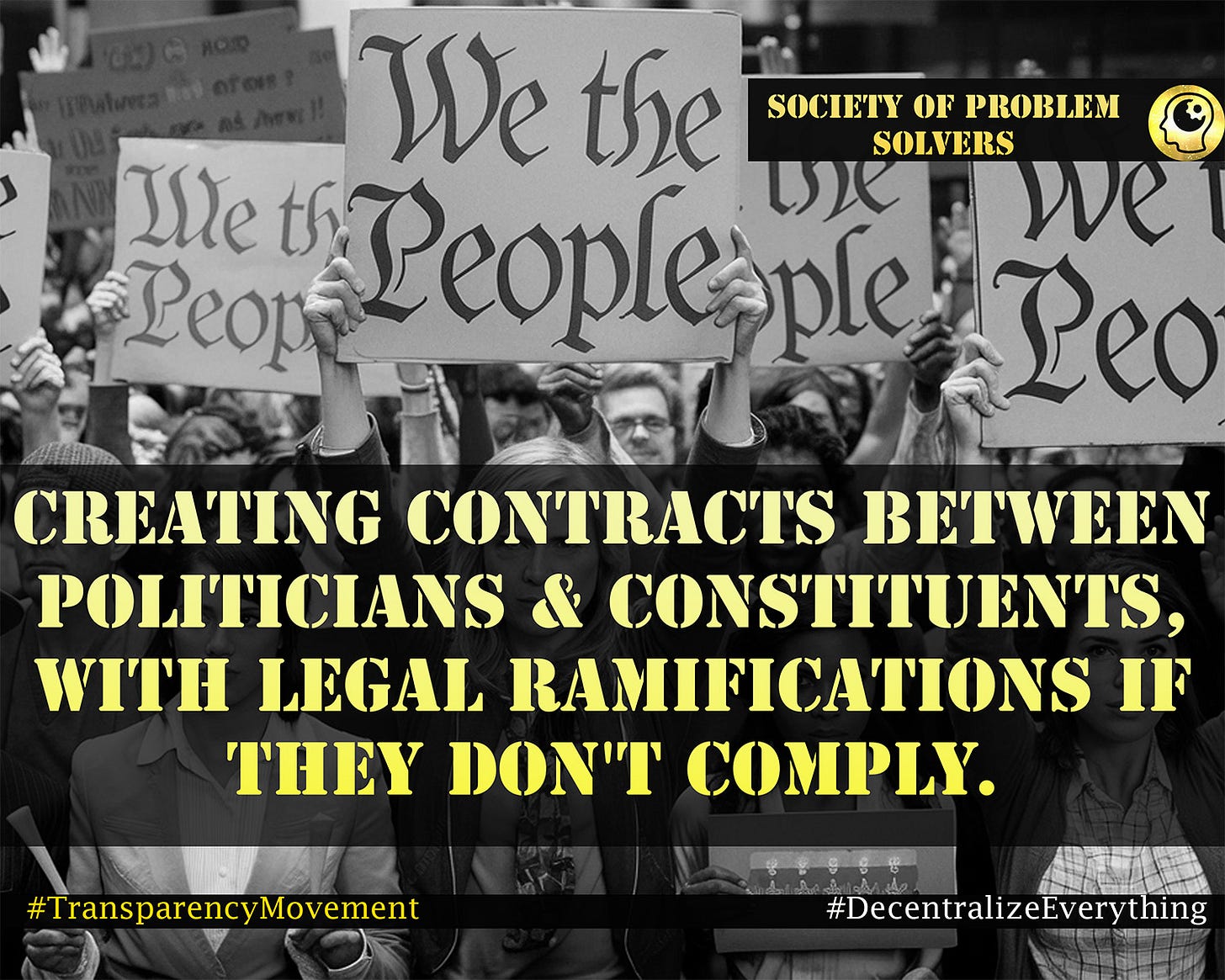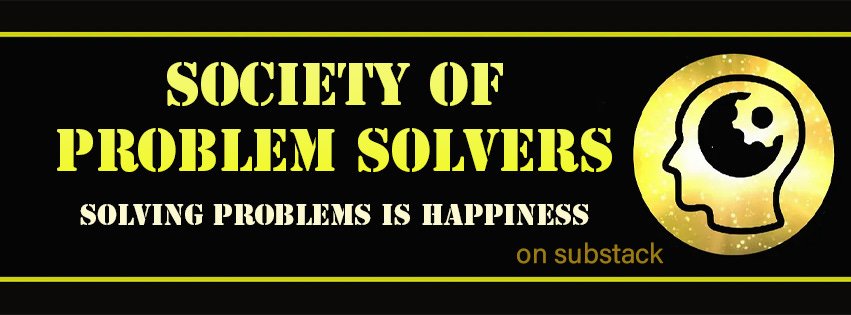Creating Contracts Between Politicians and Constituents, with Legal Ramifications if they Don't Comply.
The idea of having politicians agree to legally binding contracts with their constituents (before they are elected) has been floating around some circles lately, and we wanted to explore this interesting idea a little. Right now, politicians often submit bills that were literally written by corporations. So why can’t the people have this kind of accountability with our representatives as well?
It turns out, a group of people in Nova Scotia, Canada were already attempting this. The Independent Nova Scotia Initiative (INSI) was aiming to change how politics works by supporting independent candidates—people not linked to major political parties—in all 55 electoral districts there. Their goal was to have these independents win enough seats to influence the provincial legislature. One of the key parts of their plan was to create legally binding agreements between candidates and voters, outlining specific promises and allowing voters to remove candidates from office if they didn't fulfill them. This opened up ideas for new bills written by the people, new laws, and removing old bad laws off the books. It also created a new level of transparency and accountability in politics.
The establishment didn’t take kindly to this further decentralization of power, and the province broke their own election law, called a snap election to thwart the movement , then prohibited 18 candidates from being allowed on a ballot. As a result, INSI has requested a judicial review of the election, arguing that their rights were violated.
The Nova Scotia Supreme Court is scheduled to hear this case on February 14, 2025. INSI is hopeful for a favorable outcome, which they believe could lead to significant changes in the province's political system, and possibly the worldwide way we hold our politicians accountable.
We reached out to INSI for comment but have not heard back.
Do you think a system like this could work in America? What legal issues would it face? Could this be tied in with ballot initiatives and recalls?
And do you think Collective “Swarm” Intelligence systems could be used like a digital social credit score for politicians to hold them accountable like we wrote about HERE and HERE?
Tell us your thoughts below. Happy New Year!
All problems that do not defy the laws of physics are solvable.
Solving problems is happiness.
And humans solve problems better in high-trust groups.
#CollectiveIntelligence
Please join our think tank message board at SwarmAcademy.ai where we continue conversations like this one and where you will be able to participate in swarm intelligence problem solving with us on SWARM FORCE once it is finished being built (really close now).
For over 3 billion years on this planet there were only single-celled organisms. Then one day they somehow learned to work together and make complex multi-celled creatures . Right now we are like those single-celled organisms. Our next evolution is finding how to work together, better… (like we wrote about here).
#SwarmAcademy #NetworkState #LEADERLESS #ResultsMatterMost #DecentralizeEverything #DemandTransparency
COMMENTS ARE FOR EVERYONE AS A PLACE TO THINK-TANK SOLUTIONS. They will never be for paid-only subscribers and we will never charge a subscription.




Holding officials accountable to the public is a fine idea. The U.S. system is all promise, no follow-through. I wish the citizens of Nova Scotia all the best in their effort to create a government "Of the people" instead of "Of the corporations." Contractual agreements should help matters greatly, although somebody needs to draw up those contracts. I would expect that after some experimentation, many of the articles/clauses could become standardized boilerplate; the citizens just need to decide what terms they want. Go for it!
I like to think about what sort of a system will be in place 2000-10'000 years from now. The present system is not going to be on the list as it is too destructive. So my hope is to find the ideas that could form a SELF STABLISING system of government with maximum local content, near total OpenSource and perhaps a form of proxy voting where the citizen gives their proxy to the champion of their choice and he has only a single personal vote plus all his proxy votes. If he does not vote according to his constituents then they work on the only working solution of the prisoners dilemma, offer to cooperate unless stabbed in the back, this means that the citizen simply has to withdraw his proxy with very short notice, say a day or two and select a new champion or vote in person.
This way Direct democracy is a fail-safe and the goal could be Consensus Government.